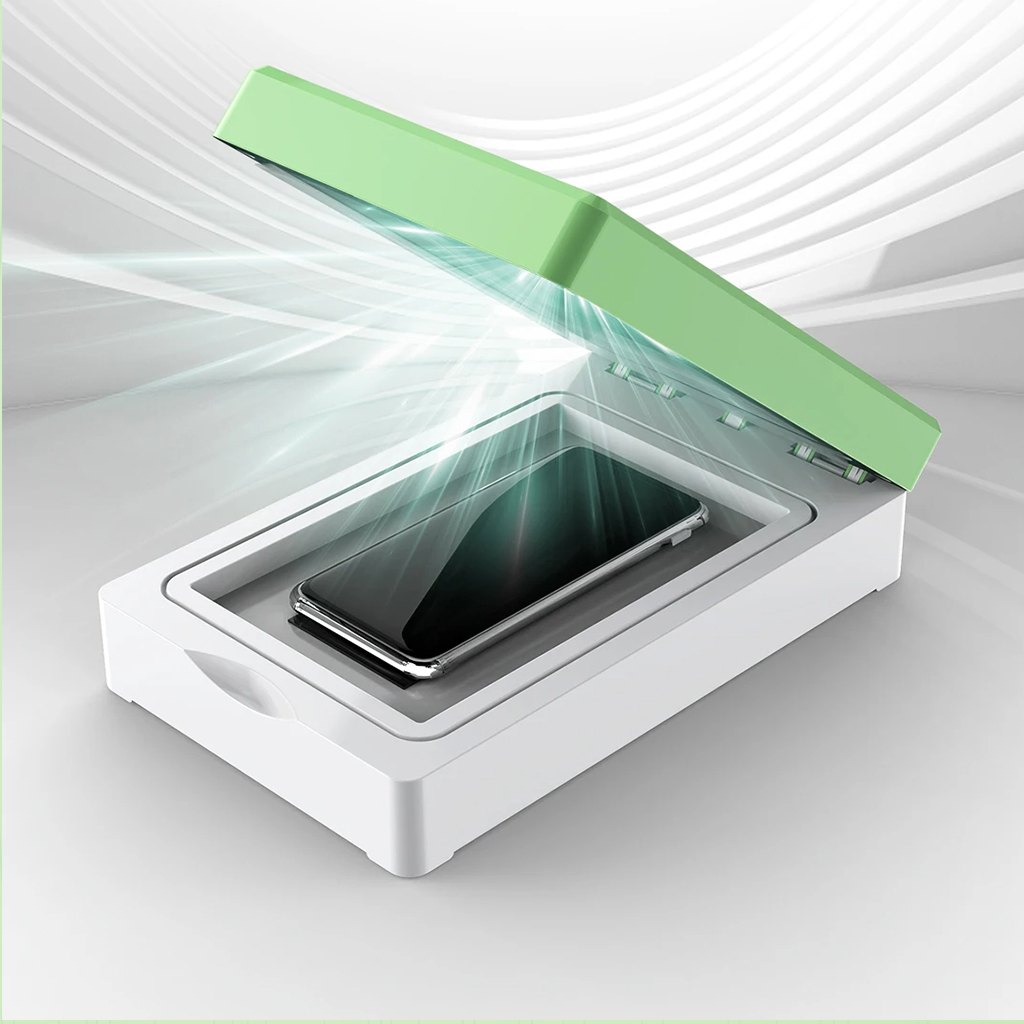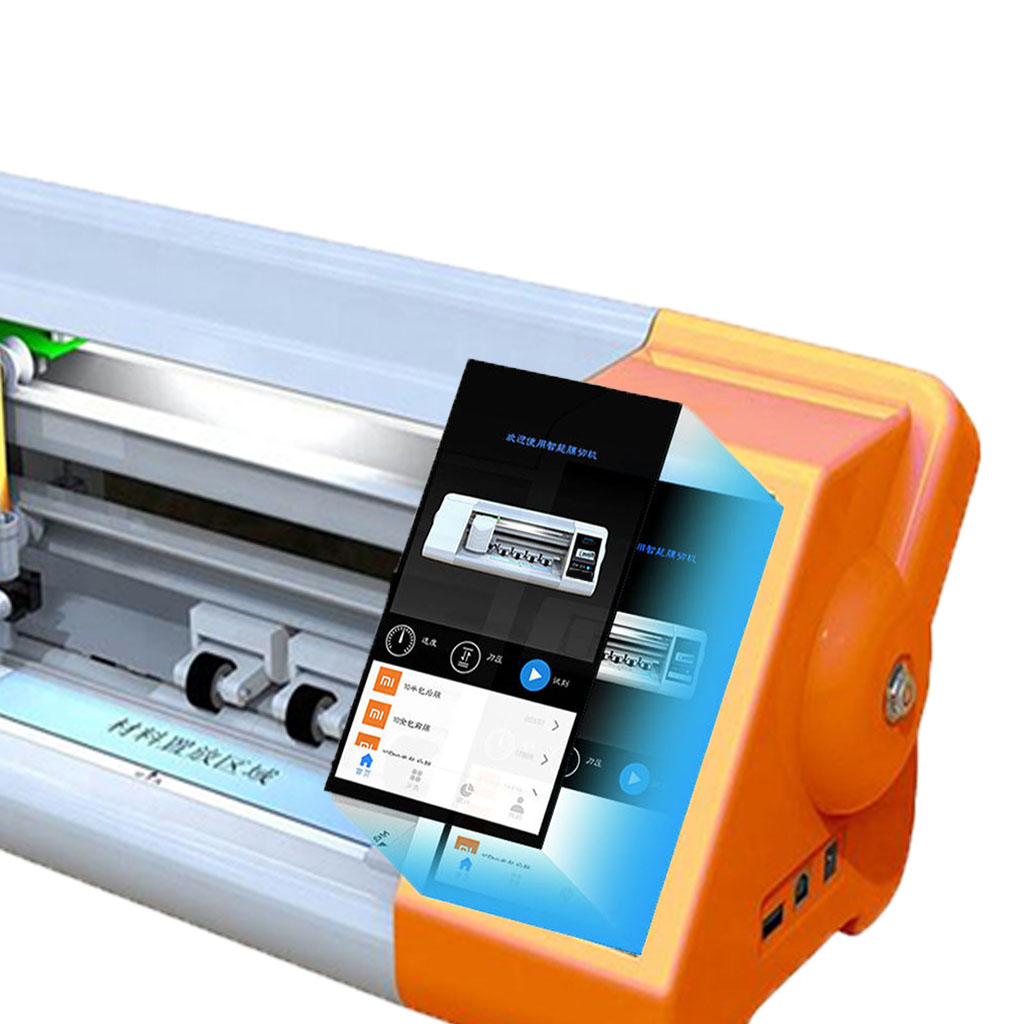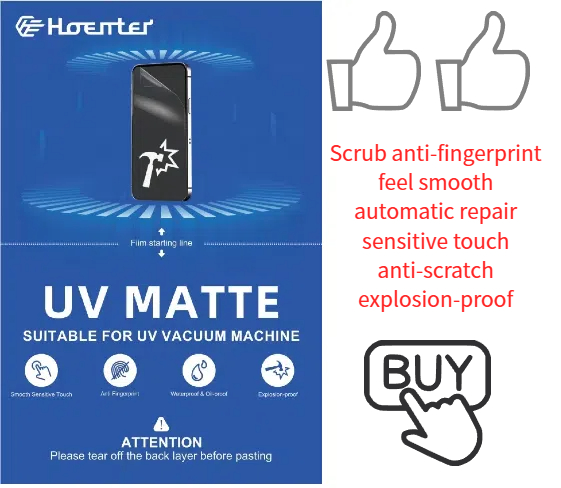
Does a Screen Protector Work Well?
Table of Contents
Summary
While advancements in screen technology, such as Ceramic Shield and Gorilla Glass, provide impressive durability, screen protectors can still offer an extra layer of security.Whether you choose a tempered glass, TPU, or PET protector, investing in a screen protector is a smart decision for anyone looking to keep their phone in top condition. By understanding the different types of protectors and their benefits, you can choose the best option for your needs.
1. What is a Screen Protector and Why Do You Need One?
Screen protectors are essential accessories for smartphones. They are designed to shield your phone’s screen from scratches, cracks, and other forms of damage. But do you really need one? The answer depends on how you use your phone and your lifestyle. If you’re someone who frequently drops their phone or carries it in a bag with keys and other sharp objects, a screen protector can be a lifesaver.Screen protectors are made from various materials, each offering different levels of protection. They can help maintain the resale value of your phone by keeping the screen in pristine condition. Moreover, they provide peace of mind, knowing that your screen is protected from everyday wear and tear.2. Types of Screen Protectors: Which is Best for You?
There are several types of screen protectors available, each with its own set of benefits and drawbacks. Tempered glass protectors are popular for their durability and clarity. They offer excellent protection against scratches and minor drops. TPU (Thermoplastic Polyurethane) protectors are flexible and offer good protection against scratches, but they may not be as clear as glass protectors. PET (Polyethylene Terephthalate) protectors are thin and lightweight, offering basic protection against scratches.When choosing a screen protector, consider your needs and preferences. If you prioritize clarity and durability, tempered glass might be the best option. If you prefer something lightweight and flexible, TPU or PET protectors could be more suitable.
3. Tempered Glass vs. Gorilla Glass: What’s the Difference?
Tempered glass screen protectors are made by heating glass to high temperatures and then cooling it rapidly. This process makes the glass stronger and more resistant to impact. Gorilla Glass, on the other hand, is a type of chemically strengthened glass used in many smartphone screens. It is designed to be thin, light, and resistant to scratches and impacts.While both tempered glass and Gorilla Glass offer excellent protection, they serve different purposes. Tempered glass protectors are an additional layer of protection, while Gorilla Glass is built into the phone’s screen. Using both can provide maximum protection for your device.4. The Rise of Ceramic Shield: Is It a Game Changer?
Apple’s Ceramic Shield, introduced with the iPhone 15, is a new type of glass that incorporates ceramic crystals for added strength. Apple claims that Ceramic Shield offers four times better drop performance than previous iPhone models. But does this mean you no longer need a screen protector?While Ceramic Shield is undoubtedly a significant advancement in screen technology, it doesn’t make screen protectors obsolete. Screen protectors can still provide an extra layer of protection against scratches and minor impacts, ensuring your phone stays in top condition.5. Do You Really Need a Screen Protector for Your iPhone 15?
With the introduction of Ceramic Shield, many iPhone users are questioning the necessity of screen protectors. While Ceramic Shield offers impressive protection, it is not invincible. Screen protectors can still help prevent scratches and minor damage, especially if you frequently carry your phone in a pocket or bag with other items.Ultimately, whether you need a screen protector for your iPhone 15 depends on your usage habits and how much protection you want for your device. If you want to ensure your phone remains in pristine condition, a screen protector is a wise investment.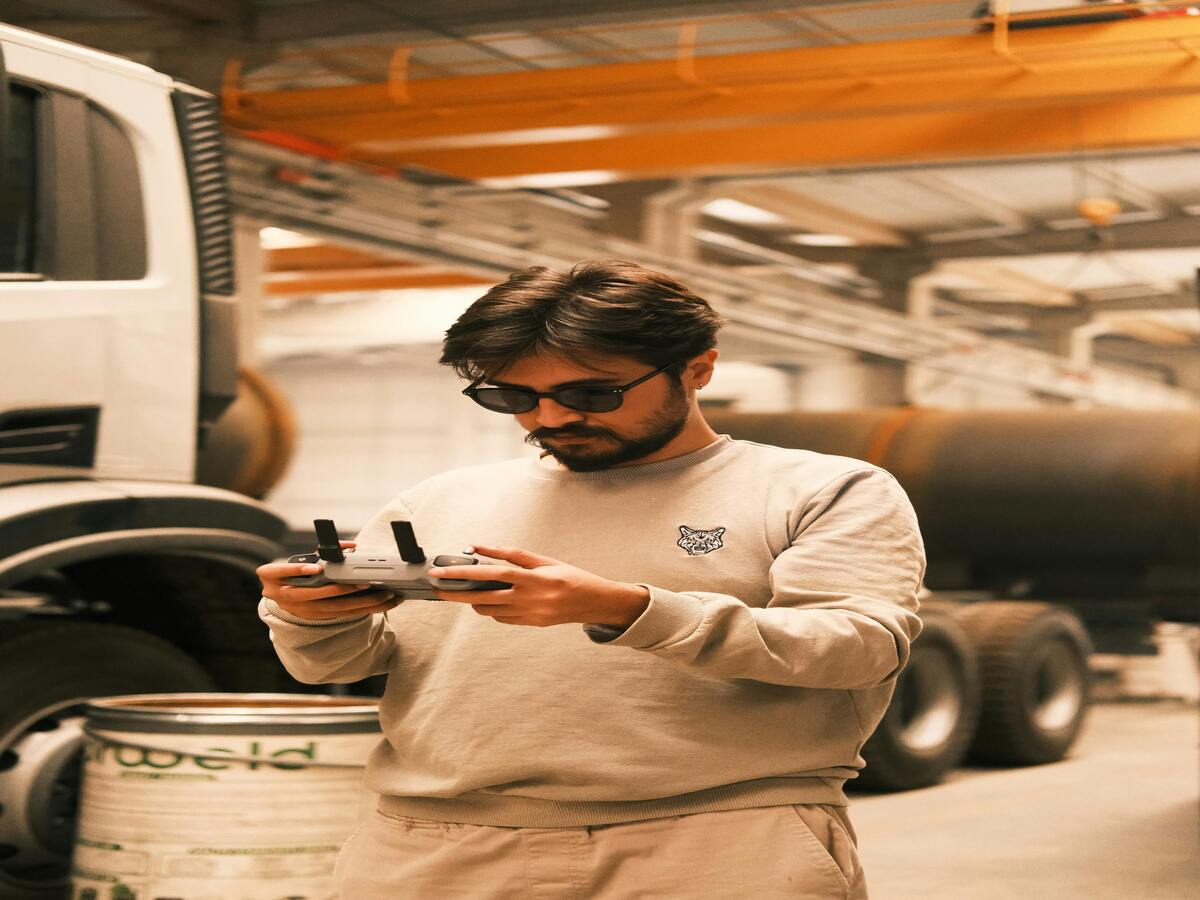
6. Impact Protection: How Much Can a Screen Protector Really Do?
Screen protectors are often marketed for their impact protection capabilities. But how much protection do they really offer? The answer depends on the type of screen protector you choose. Tempered glass protectors are known for their ability to absorb impact and prevent cracks, while TPU protectors offer flexibility and shock absorption.While screen protectors can help reduce the risk of damage from minor drops and impacts, they are not a substitute for a sturdy phone case. For maximum protection, consider using a screen protector in conjunction with a durable case.7. The Best Screen Protectors for Smartphones: Our Top Picks
When it comes to choosing a screen protector, there are many options available. Some of the best screen protectors on the market include:- amFilm Tempered Glass: Known for its durability and clarity, amFilm offers excellent protection against scratches and impacts.
- Spigen NeoFlex: A flexible TPU protector that provides good scratch resistance and is easy to apply.
- ZAGG InvisibleShield: Offers advanced protection with self-healing technology to repair minor scratches.
8. How to Apply a Screen Protector Without Bubbles
Applying a screen protector can be a daunting task, especially if you’re worried about bubbles. Here’s a step-by-step guide to help you apply your screen protector perfectly:- Clean the Screen: Use a microfiber cloth and cleaning solution to remove any dust and fingerprints from your screen.
- Align the Protector: Carefully align the screen protector with your phone’s screen, making sure all edges are lined up.
- Apply the Protector: Slowly lower the protector onto the screen, starting from one edge and working your way across.
- Remove Bubbles: Use a credit card or similar object to gently push out any bubbles, starting from the center and moving towards the edges.
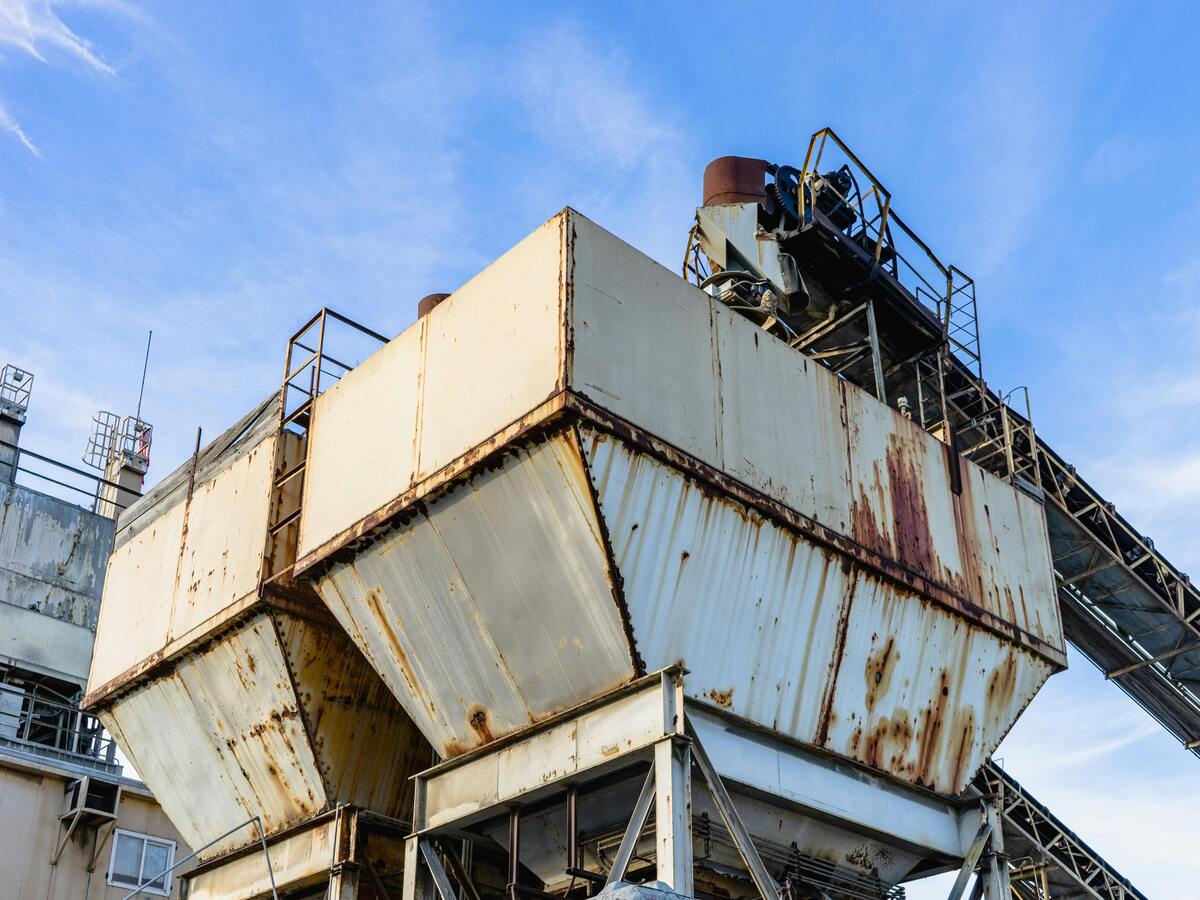
9. Common Myths About Screen Protectors Debunked
There are many myths surrounding screen protectors, and it’s important to separate fact from fiction. Here are some common misconceptions:- Myth: Screen protectors reduce touch sensitivity. While some low-quality protectors may affect touch sensitivity, high-quality protectors are designed to maintain the screen’s responsiveness.
- Myth: Screen protectors are unnecessary with Gorilla Glass. While Gorilla Glass is durable, it is not scratch-proof. A screen protector can provide an extra layer of protection.
- Myth: All screen protectors are the same. Screen protectors vary in quality and material, so it’s important to choose one that meets your needs.
Comments
Tags
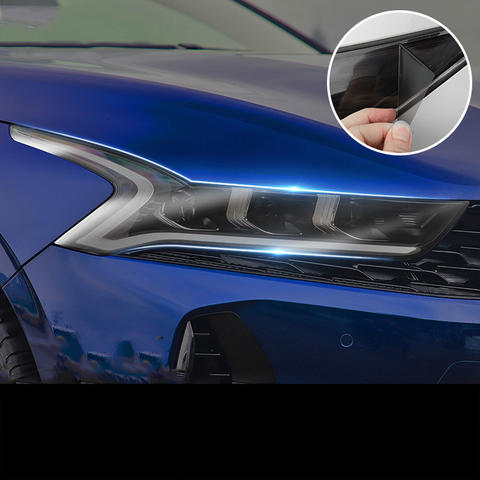
Geely Xingyue GPS Dashboard Tempered Film
High-quality Geely Xingyue Dashboard Film at a great price. Designed specifically for the Xingyue, providing excellent scratch resistance and clarity.
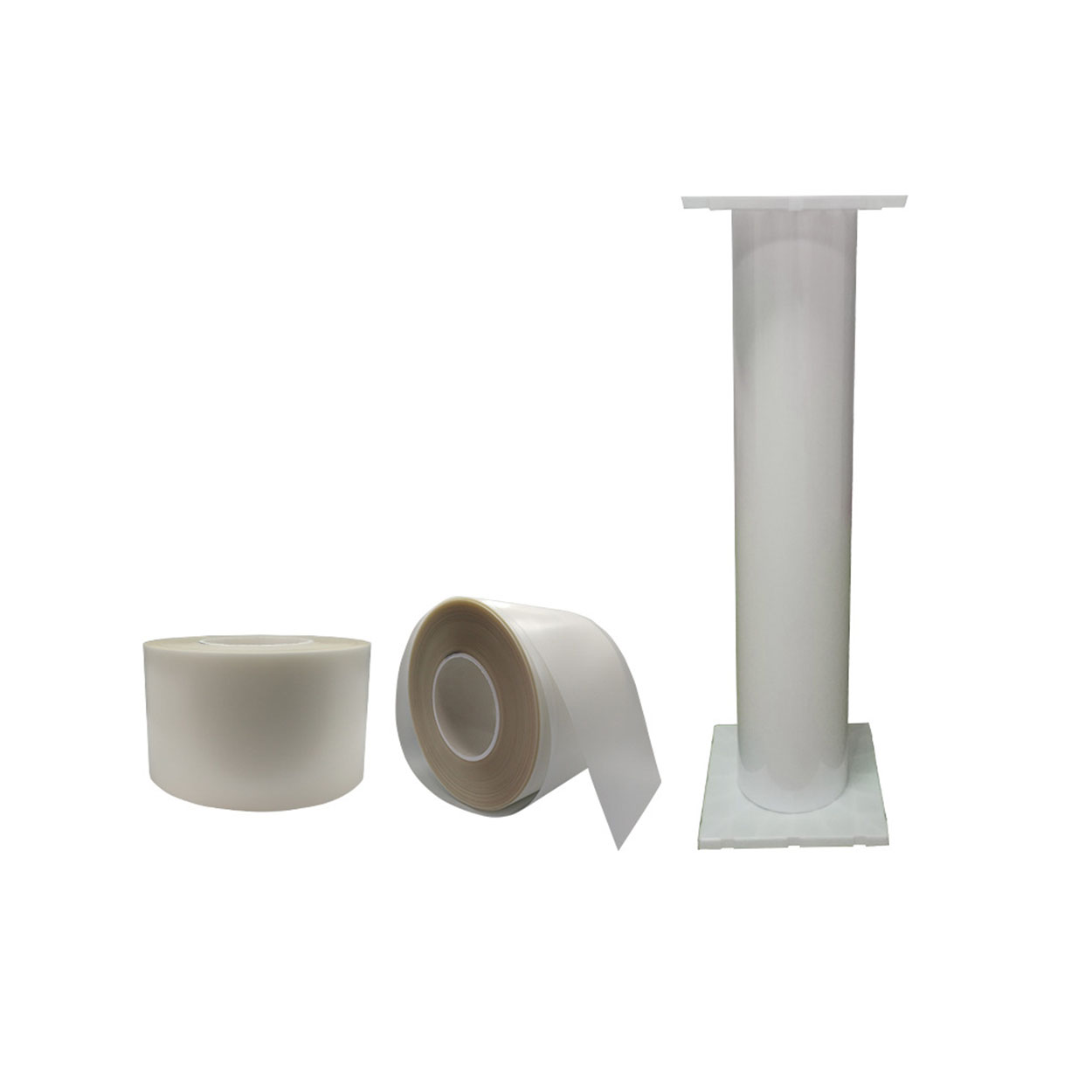
Wholesale Screen Protector Flexible Hydrogel TPU Film Roll
Thermoplastic Polyurethane (TPU) film has emerged as a highly versatile material, offering distinct benefits over conventional plastic films like Polyvinyl Chloride (PVC). Its exceptional characteristics have positioned TPU as a go-to choice across industries such as automotive, apparel, electronics, and medical applications.

Screen Protector Cutting Machine Price vs. Performance-Finding the Right Balance
The topic of “Screen Protector Cutting Machine Price vs. Performance” explores the critical balance between the cost and functionality of machines used for cutting screen protectors.
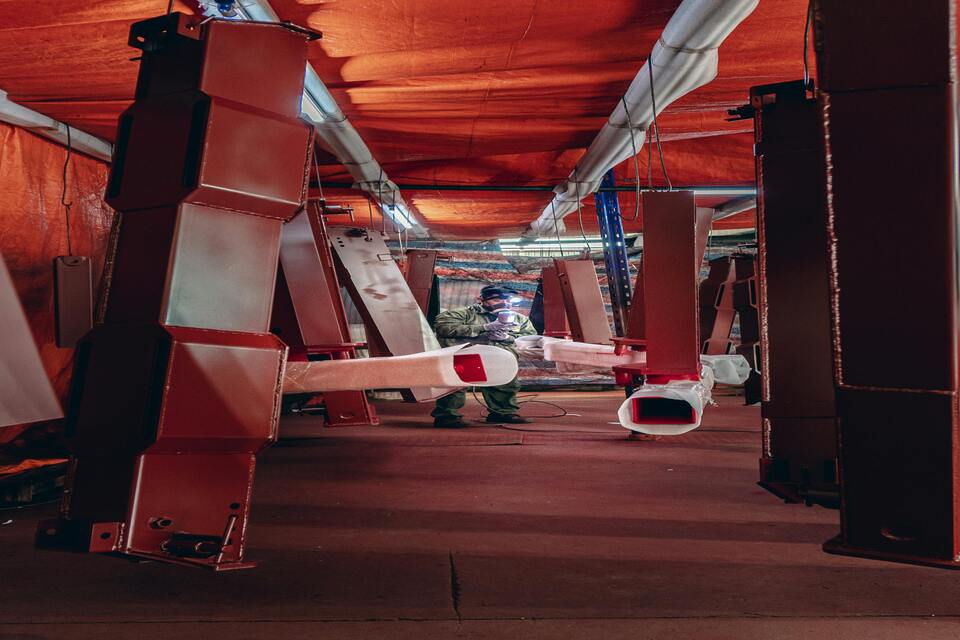
How to Use Guide Stickers for Screen Protector?
By following this guide, you can confidently install a tempered glass screen protector like a pro. Protect your phone and enjoy a flawless screen every time!

Expert Tips for Maintaining Your Screen Protector Cutter
Screen protector cutters are specialized tools that ensure precise application, seamless fit, and enhanced protection for various devices.
Find All knowledge and trends from our blog, get the wholesale price and best quality from our factory.
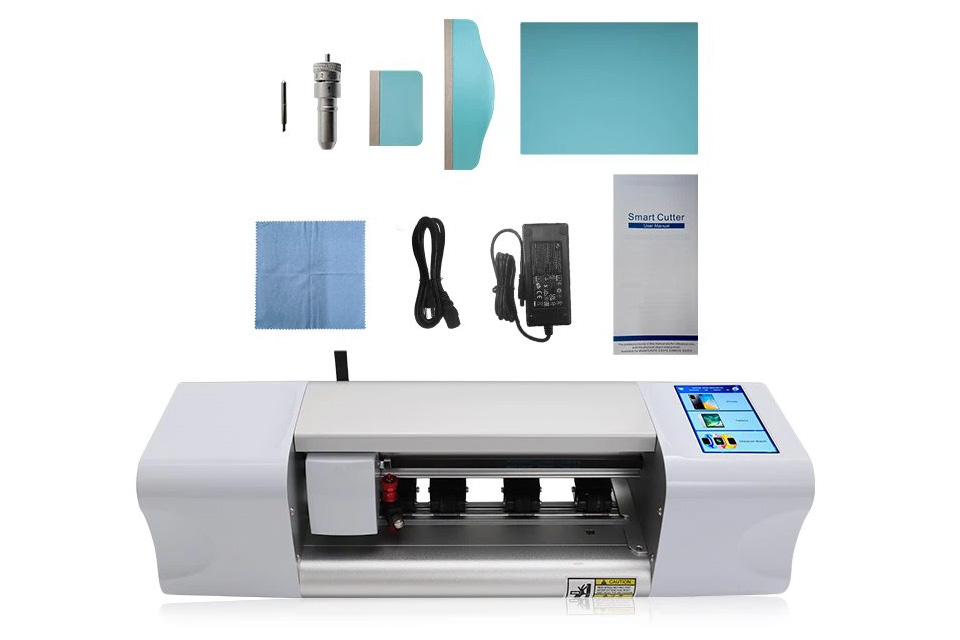
What Film Cutting Machine and Its Application
Film cutting machines have played a crucial role in the evolution of filmmaking and various industrial processes by enabling precise cutting and splicing of film materials.
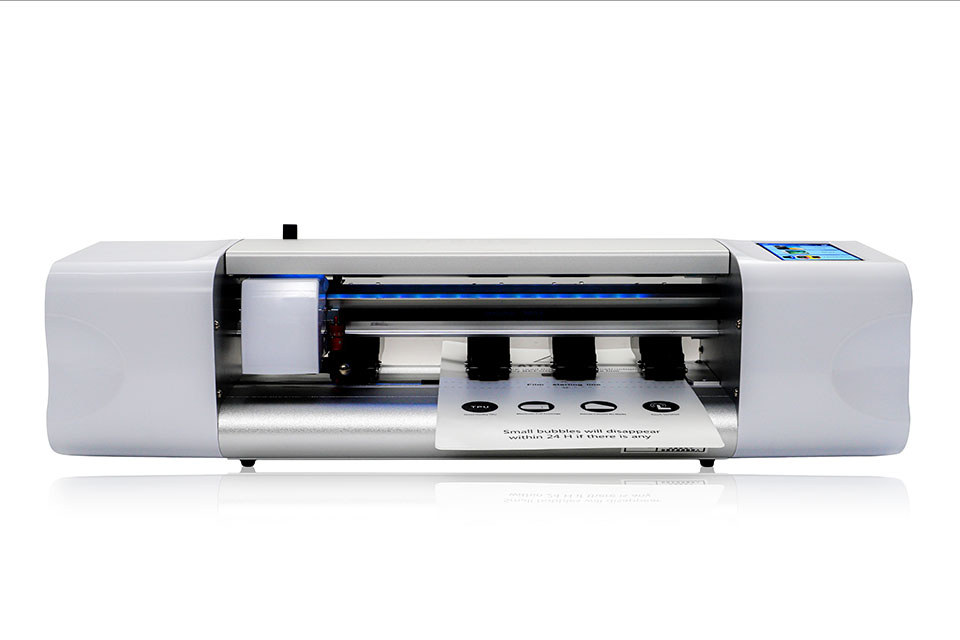
What Is a Screen Protector Cutting Machine?
A screen protector cutting machine is a specialized device designed to produce custom-fit screen protectors for various electronic devices, including smartphones, tablets, smartwatches, laptops, and monitors.
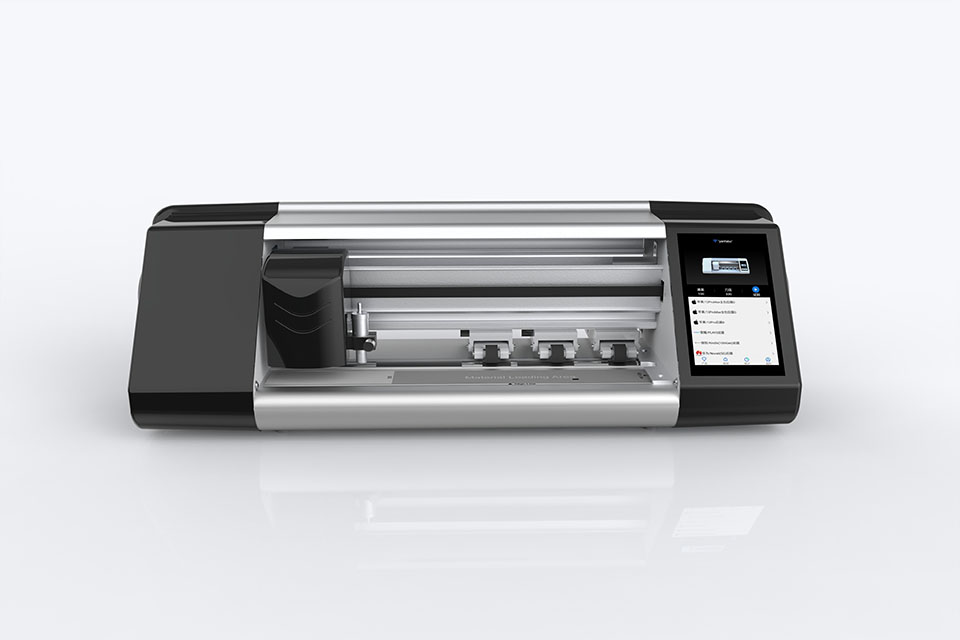
How Mobile Phone Screen Protector Cutting Machine Work?
A mobile phone screen protector cutting machine is a sophisticated device designed
to produce customized screen protectors for various digital devices with high preci
sion and efficiency.
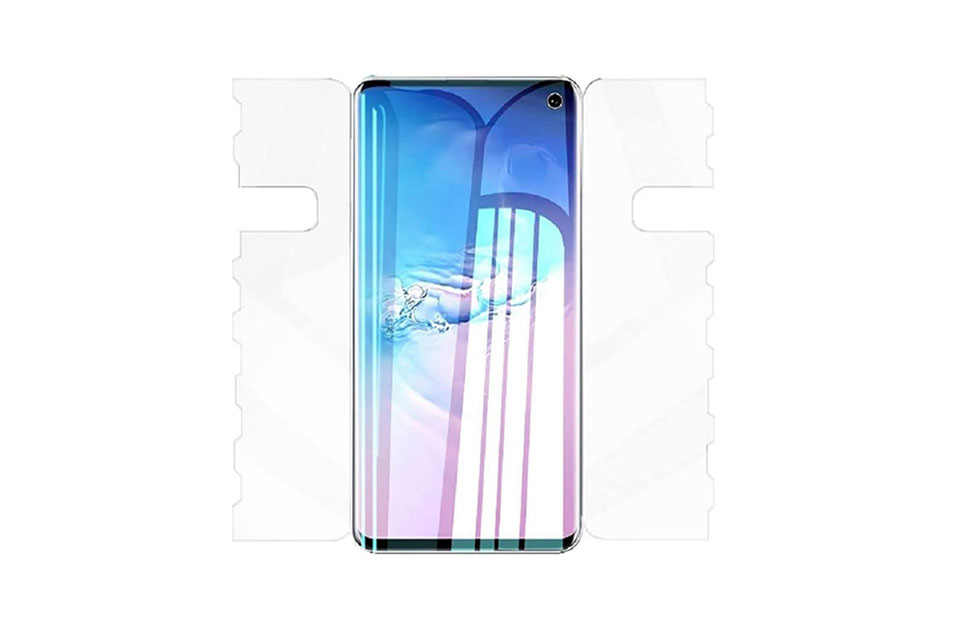
Characteristics of Mobile Phone Tempered Glass and Mobile Phone TPU Screen Protector
Thermoplastic polyurethane (TPU) screen protectors are flexible, durable, and
self-healing plastic films designed to protect electronic device screens from
scratches, impacts, and other potential damages.
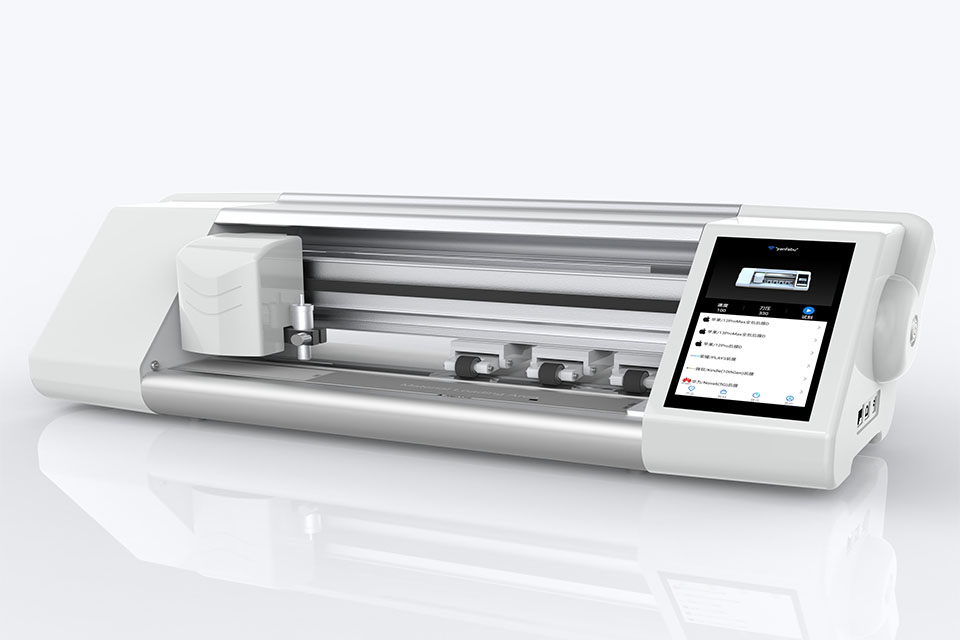
Revolutionize Device Protection with Screen Guard Cutting Machine
Whether you possess a smartphone, tablet, or smartwatch, this versatile machine accommodates a vast array of devices. It seamlessly adapts to the dimensions of your gadget, offering a custom fit that generic protectors can’t match.
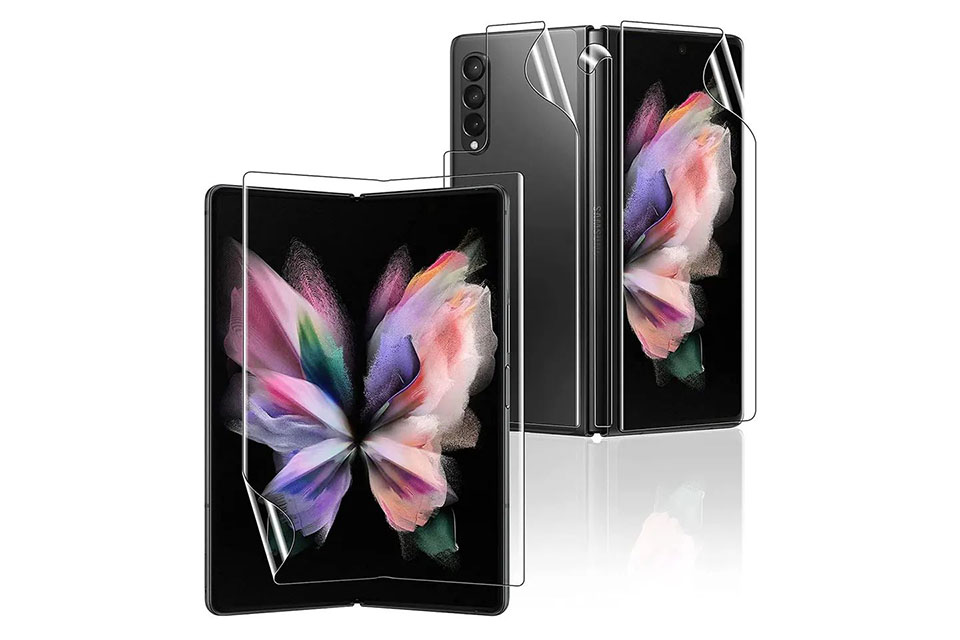
Screen Protector Lifetime Warranty
A screen protector lifetime warranty is a guarantee provided by manufacturers that
promises to repair or replace a screen protector for the lifetime of the product, under specific terms and conditions.

